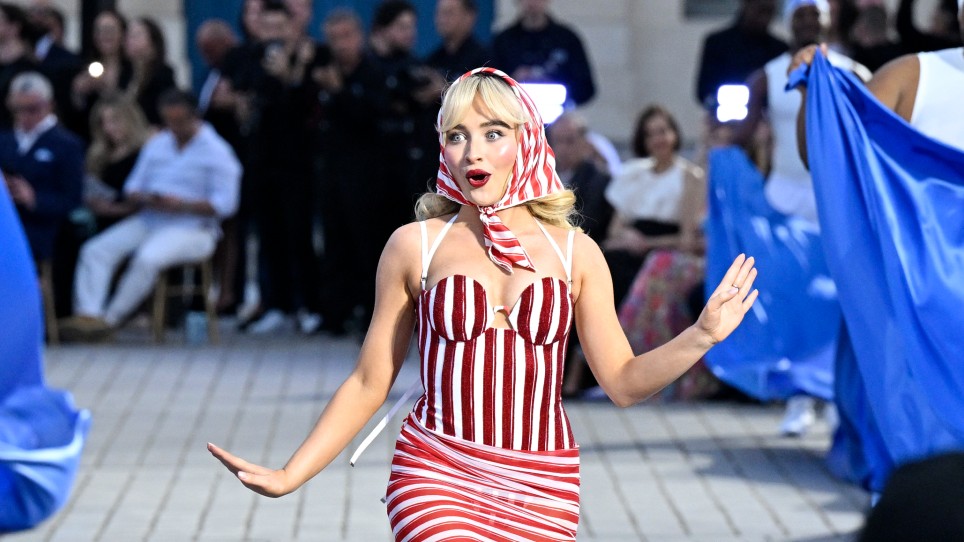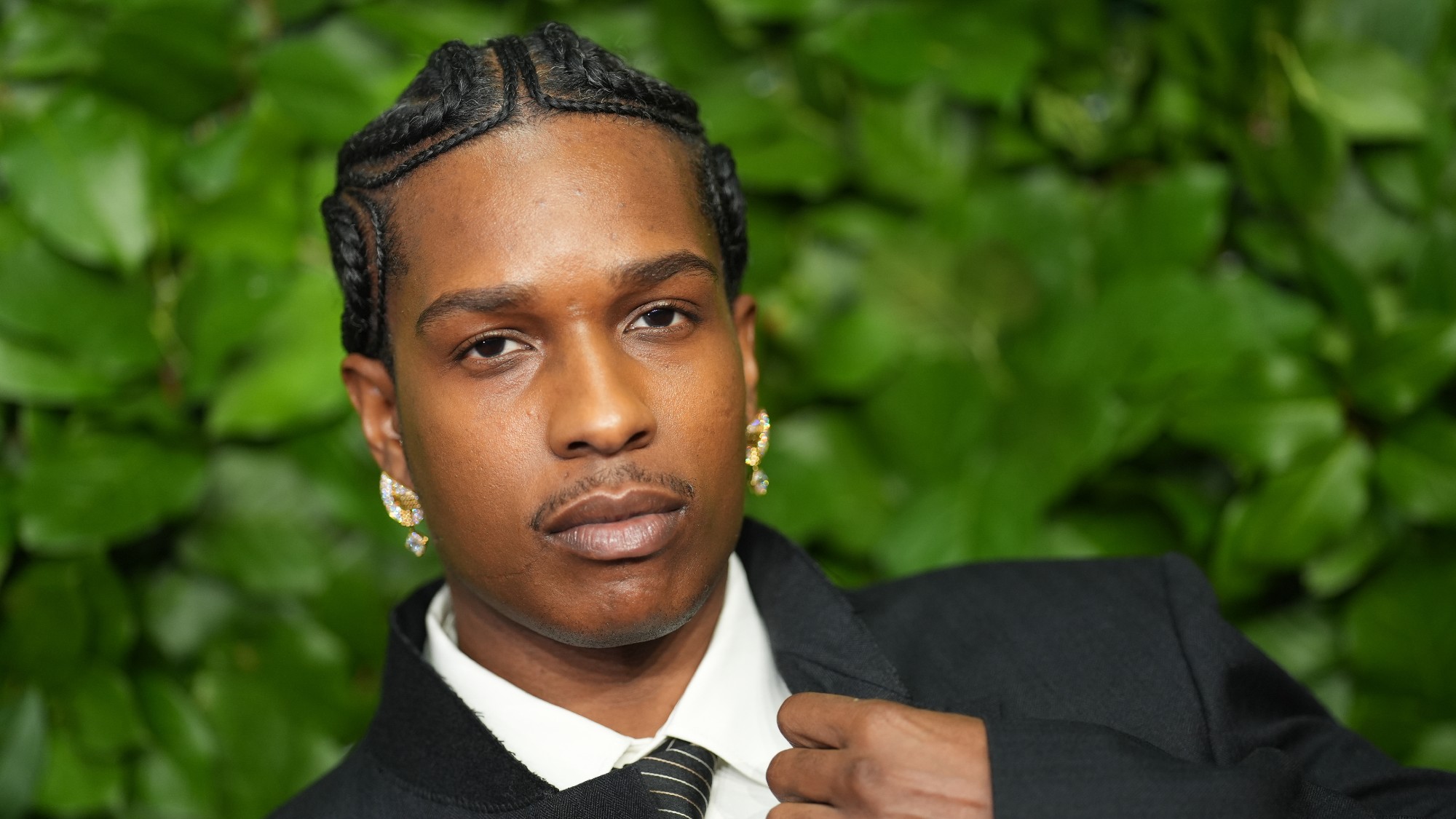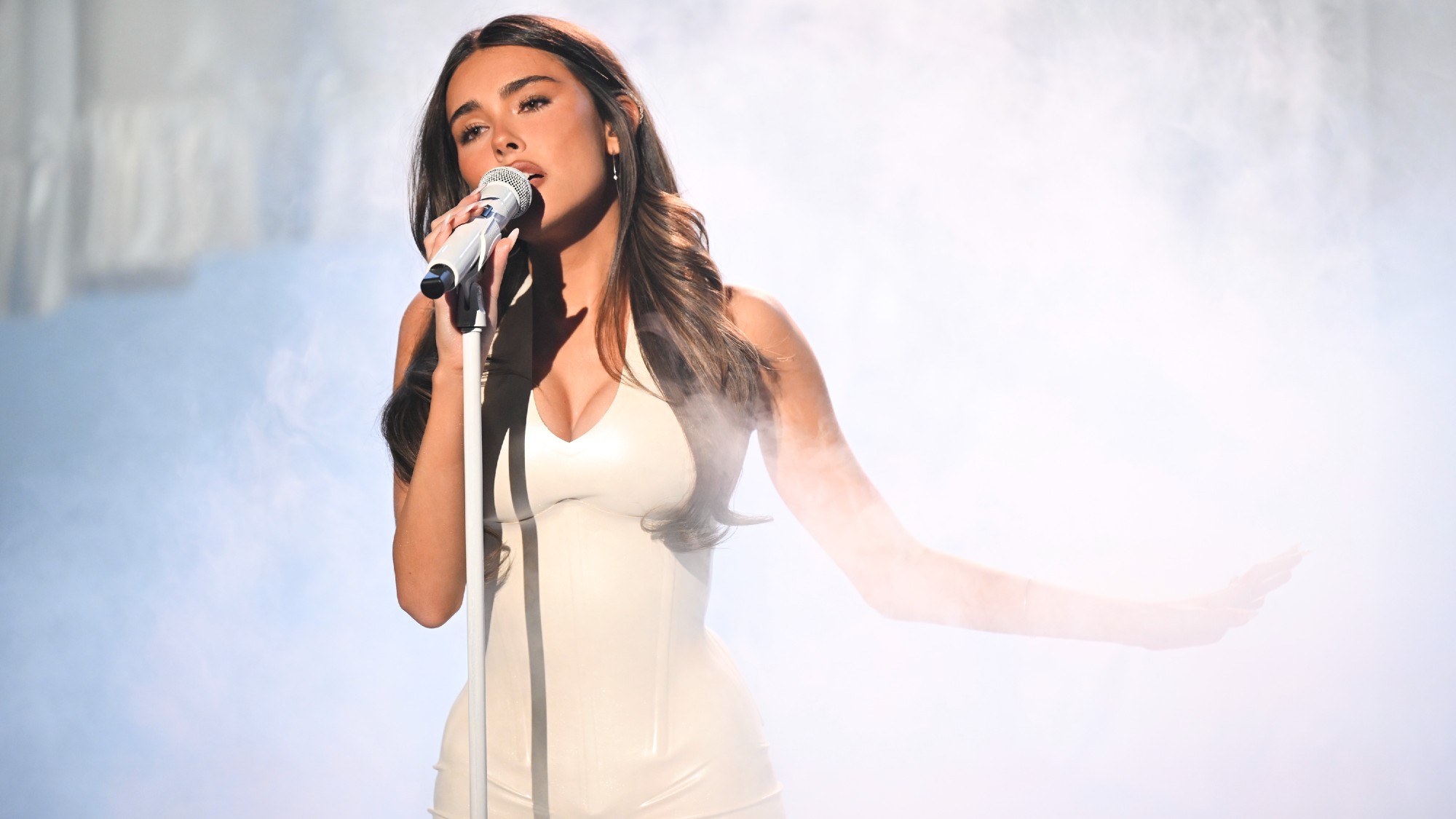Sabrina Carpenter and Spotify conspiracy theories
Popularity of viral hit Espresso sparks accusations of modern 'payola' and algorithm hijacking by streaming platforms

A free daily email with the biggest news stories of the day – and the best features from TheWeek.com
You are now subscribed
Your newsletter sign-up was successful
It seems as though everyone is singing Sabrina Carpenter's viral hit "Espresso", but its ubiquity has some speculating that we might be dancing to the tune of Big Streaming.
"The disco-inflected soft pop hit, performed by a Polly Pocket-sized former Disney Channel star, was deemed the song of summer nearly as soon as it was released in mid-April," said Vox.
But is that because the song is so good or, as one comedian suggested on X, because Carpenter's label was paying Spotify to "force-feed 'Espresso' down the throats of listeners"?
The Week
Escape your echo chamber. Get the facts behind the news, plus analysis from multiple perspectives.

Sign up for The Week's Free Newsletters
From our morning news briefing to a weekly Good News Newsletter, get the best of The Week delivered directly to your inbox.
From our morning news briefing to a weekly Good News Newsletter, get the best of The Week delivered directly to your inbox.
That's that me, Sabrina Carpenter
The 25-year-old is currently "everywhere", said Ceci Browning in The Spectator: "music videos, magazine covers, billboards, chat show sofas and, of course, Instagram and TikTok".
Carpenter's rumoured relationship with "Saltburn" star Barry Keoghan has also sparked a media frenzy. "If you're under the age of 30, you can't escape Carpenter."
But she has been "in the business for years", said NBC News. She released her debut album "Eyes Wide Open" in 2015 and followed that with four more for the Disney Music Group. She rose to global fame this year as the opening act for several dates of Taylor Swift's world-dominating Eras Tour, she "went viral" in April after performing "Espresso" for the first time at the Coachella music festival and "became ubiquitous online" thanks to TikTok videos and Spotify streams.
Some users began to notice that "Espresso", with its distinctive but nonsensical chorus-line lyric "That's that me, espresso", would "autoplay on the platform no matter what they were listening to".
A free daily email with the biggest news stories of the day – and the best features from TheWeek.com
Therein lies the root of the conspiracy theory: that the biggest music streaming platform has "arrangements with record labels to boost streams for particular songs and artists", said Vox.
It's "not exactly far-fetched", either. The history of pop music is "rife with payola scandals", in which executives "manufactured hits by paying for radio play", and continued to find loopholes after it was outlawed in the US in 1960.
This is not to "diminish" Carpenter, or the "impressively lean and catchy" song "Espresso", said NME. But its "sheer prevalence" on Spotify, which seems to "disregard genres and listening habits", raises questions.
One thing to note is that Spotify has recently changed its autoplay feature so tracks are chosen based on "recommendations", as opposed to "its previous model of what the user had been listening to".
Then there's "shrewd viral marketing" by Island Records. Carpenter's label is part of Universal Music, which owns shares in Spotify. Tencent, an online advertising company, owns shares in Universal Music, while Spotify owns shares in Tencent. "Are you keeping up?" asked NME.
"There's no hard evidence to suggest that labels are directly paying Spotify to boost certain artists and songs," said Vox. "Yet it's almost impossible to prove that it's not happening" as deals are confidential and algorithms are "intentionally designed as black boxes". So "no wonder so many of us think something shady is going on".
Music's modern landscape
There is "a lot of chatter online" about whether Carpenter is being "boosted by Spotify", said Ryan Broderick in Garbage Day.
It's "not dissimilar" from the conspiracy theory that Chappell Roan, another young viral American pop singer, is an "industry plant". After all, Carpenter did just announce a "pre-sale ticket deal" with Spotify. And unlike Roan, "Carpenter is not attached to a pre-existing scene", either in real life or online.
But the fact remains that people "seem to like" Carpenter's songs. The "real takeaway" here, said Broderick, is that music fans are "becoming paranoid of how powerful Spotify is", while younger listeners "don't seem to remember a time before it".
"The rise of TikTok and Spotify algorithms have been credited with contributing to the end of 'monoculture' or simultaneous, collective cultural experiences," said NBC News. But with "Espresso", Carpenter has used the "modern landscape of the music industry to her favour, capitalising on TikTok and Spotify to increase the song's ubiquity".
Ultimately, Spotify and artists' teams can "pump everything into a track going viral", but people still have to "choose to engage" with a song to keep it going, said NME. And "really and truly, we're all vibing to it".
That says more about listeners, said Browning in The Spectator. "There's nothing complex in artists like Carpenter, only dopamine-hacking jingles that play on our anticipation-reward systems." The system rewards musicians like Carpenter who write "forgettable, sugar-rush tunes".
So is Carpenter a viral sensation or an algorithmic flash-in-the-pan? "Who cares," says Broderick. "What are we even talking about here? She's a pop star making pop music."
Harriet Marsden is a senior staff writer and podcast panellist for The Week, covering world news and writing the weekly Global Digest newsletter. Before joining the site in 2023, she was a freelance journalist for seven years, working for The Guardian, The Times and The Independent among others, and regularly appearing on radio shows. In 2021, she was awarded the “journalist-at-large” fellowship by the Local Trust charity, and spent a year travelling independently to some of England’s most deprived areas to write about community activism. She has a master’s in international journalism from City University, and has also worked in Bolivia, Colombia and Spain.
-
 How the FCC’s ‘equal time’ rule works
How the FCC’s ‘equal time’ rule worksIn the Spotlight The law is at the heart of the Colbert-CBS conflict
-
 What is the endgame in the DHS shutdown?
What is the endgame in the DHS shutdown?Today’s Big Question Democrats want to rein in ICE’s immigration crackdown
-
 ‘Poor time management isn’t just an inconvenience’
‘Poor time management isn’t just an inconvenience’Instant Opinion Opinion, comment and editorials of the day
-
 Bad Bunny’s Super Bowl: A win for unity
Bad Bunny’s Super Bowl: A win for unityFeature The global superstar's halftime show was a celebration for everyone to enjoy
-
 Microdramas are booming
Microdramas are boomingUnder the radar Scroll to watch a whole movie
-
 The 8 best superhero movies of all time
The 8 best superhero movies of all timethe week recommends A genre that now dominates studio filmmaking once struggled to get anyone to take it seriously
-
 Josh D’Amaro: the theme park guru taking over Disney
Josh D’Amaro: the theme park guru taking over DisneyIn the Spotlight D’Amaro has worked for the Mouse House for 27 years
-
 Music reviews: Ari Lennox, Lucinda Williams, and A$AP Rocky
Music reviews: Ari Lennox, Lucinda Williams, and A$AP RockyFeature ‘Vacancy,’ ‘World’s Gone Wrong,’ and ‘Don’t Be Dumb’
-
 Bad Bunny, Lamar, K-pop make Grammy history
Bad Bunny, Lamar, K-pop make Grammy historySpeed Read The Puerto Rican artist will perform at the Super Bowl this weekend
-
 The best fan fiction that went mainstream
The best fan fiction that went mainstreamThe Week Recommends Fan fiction websites are a treasure trove of future darlings of publishing
-
 Music reviews: Zach Bryan, Dry Cleaning, and Madison Beer
Music reviews: Zach Bryan, Dry Cleaning, and Madison BeerFeature “With Heaven on Top,” “Secret Love,” and “Locket”